MercoPress. South Atlantic News Agency
Tag: beef
-
Tuesday, November 27th 2018 - 08:03 UTC
Brazil's Minerva and Alibaba agree on five-year beef supply deal to China
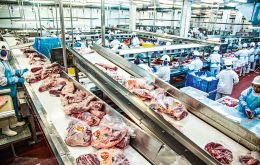
Brazilian food company Minerva SA has signed memorandums of understanding with China's Alibaba and another five clients in the world's most populous nation to supply frozen beef for a period of five years.
-
Thursday, November 1st 2018 - 08:06 UTC
Russia lifts ban on imports of pork and beef from nine Brazilian plants

Russia's agriculture safety watchdog said on Wednesday it would allow imports of beef and pork from nine Brazilian plants beginning on Thursday, ending an 11-month ban triggered by concerns about the safety of their meat products.
-
Wednesday, August 29th 2018 - 08:45 UTC
Argentina's beef exports expected to double this year boosted by China's purchases
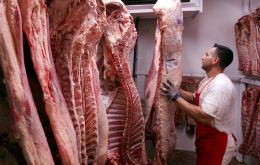
Argentina's beef exports could double in 2018 for a total of US$ 1.8 billion thanks to increased Chinese demand and a sharp devaluation of the peso currency, according to analysts and industry experts.
-
Thursday, January 18th 2018 - 09:11 UTC
All cuts of Argentine beef and lamb have full access to the Chinese market
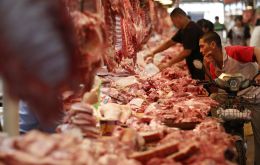
Argentina and China signed a “historic” agreement that opens the huge Asian market to beef and lamb with bone from the South American country, according to Senasa the Argentine agriculture and livestock sanitary office. The deal concludes fifteen years of negotiations and means access to the world's largest importer of beef.
-
Tuesday, January 2nd 2018 - 10:53 UTC
Japan prepared to lift its ban on beef imports from Uruguay
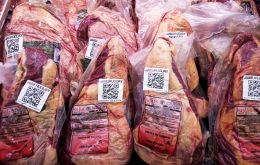
Japan is planning to lift a ban on beef imports from Uruguay next year, ending a more than 17-year embargo following the outbreak of foot-and-mouth disease in the South American nation in 2000, according to government sources in Tokyo.
-
Thursday, December 21st 2017 - 11:12 UTC
EU stands firmly on its beef offer to Mercosur: 70.000 tons

The European Union's offer on beef in Mercosur trade negotiations has not been revised according to the EU Agriculture Commissioner Phil Hogan, who said a deal may happen in February. Speaking to journalists in Brussels on Wednesday, EU Agriculture Commissioner Phil Hogan said that the EU's offer on beef access for Mercosur countries has not been revised since December 5.
-
Friday, December 15th 2017 - 14:53 UTC
Brazilian beef exporters expect a record year in 2018: 1.68 million tons
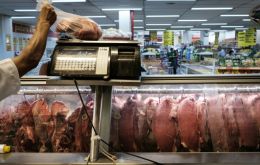
Brazilian beef exporters expect shipments to grow 10% in 2018 after rising an estimated 9% this year despite corruption and food safety scandals that temporarily closed off major markets. Trade group Abiec on Thursday said Brazil, the world’s largest beef exporter, would likely sell 1.68 million tons of beef abroad next year, up from 1.53 million tons in 2017. Revenue is expected to rise about 11% to US$6.9 billion in 2018, after a 13% rise this year to US$6.2 billion.
-
Friday, July 10th 2015 - 07:08 UTC
China becomes main importer of Uruguayan and Argentine frozen beef
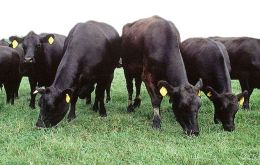
China has become the largest importer of frozen Argentine beef, according to the latest data released by the Industry and Trade of Meat and Meat Produce Association (CICCRA). However these figures are far from neighboring Uruguay which in four months shipped to China almost 50.000 tons, that has become the country's leading market.
-
Wednesday, July 17th 2013 - 19:58 UTC
Chinese market for beef soaring; companies after overseas farms and processors
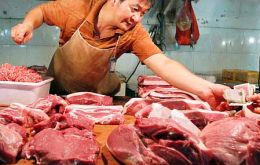
With more money in their pockets, millions of Chinese are seeking a richer diet and switching to beef, driving imports to record levels and sending local meat firms abroad to scout for potential acquisition targets among beef farmers and processors.
-
Wednesday, November 7th 2012 - 22:52 UTC
Global meat production reached 297 million tons last year, up 0.8% over 2010
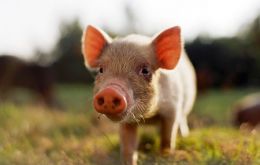
Global meat production rose to 297 million tons in 2011, an increase of 0.8% over 2010 levels, and is projected to reach 302 million tons by the end of 2012, according to new research conducted by the Worldwatch Institute.
